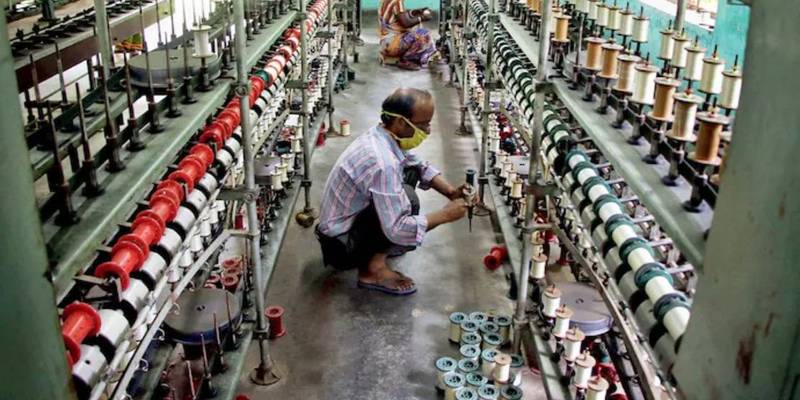The renowned textile industry in Bhilwara has encountered numerous obstacles in its history, including the license raj and political indifference. It confronts two primary challenges: a significant rise in electricity tariffs and enticing offers from neighboring states to relocate their operations.
There are concerns regarding the potential decline in prominence of Bhilwara, known as the ‘Textile City’ of Rajasthan. Madhya Pradesh and Gujarat actively attract textile traders to establish regional units. The state government must intensify its efforts in supporting the industry’s growth to mitigate this potential loss of prominence.
The textile industry in Bhilwara, which encompasses approximately 400 weaving units equipped with state-of-the-art technologies, has experienced prosperous periods and successfully navigated obstacles such as water scarcity and the repercussions of the COVID-19 pandemic. It aspires to surmount the most recent series of crises as well.
According to Prem Garg, the Bhilwara Textile Trade Federation’s vice president, nine electricity tariff increases occurred within the past five years. Additionally, the regular occurrence of power outages has added further complexity to the functioning of the textile units.
With the impending assembly elections, the textile industry has initiated discussions regarding its primary demands, which include power subsidies and implementing policies to enhance the ease of conducting business operations. One government implements specific policies, while the subsequent administration reverses them. Garg emphasized the importance of establishing a sense of certainty and continuity in business policies.
Garg’s concerns are also shared by RK Jain, who serves as the general secretary of the Mewar Chamber of Commerce and Industries. The textile industry in Bhilwara encounters significant electricity costs, with tariffs ranging from Rs 9 to Rs 9.30 per unit. Jain pointed out that the textile industry in Bhilwara is disadvantaged compared to states such as Maharashtra or Madhya Pradesh due to the absence of rebates and subsidies that could mitigate these expenses.
The governments of Madhya Pradesh and Gujarat have proactively engaged in efforts to attract textile industries from Bhilwara to establish manufacturing units within their respective states. According to Garg, the two adjacent states have successfully established an environment conducive to business activities. Additionally, Madhya Pradesh has specifically undertaken initiatives to attract textile traders from Bhilwara.
The Madhya Pradesh government organizes seminars in Bhilwara to demonstrate its dedication to attracting investments and ensuring a smooth process for entrepreneurs seeking to invest in Madhya Pradesh. According to Garg, the officials provide reassurance regarding the absence of concerns related to laborious paperwork and sanction matters. According to Jain, senior IAS officers from Madhya Pradesh assure entrepreneurs that their approvals will be processed through a single-window system, ensuring a smooth and hassle-free experience. The individual expressed that numerous enterprises from Bhilwara have already transferred their operations to states such as Madhya Pradesh. Additionally, they emphasized the importance of the Rajasthan government taking proactive measures to preserve Bhilwara’s status as the Textile City of the state.

